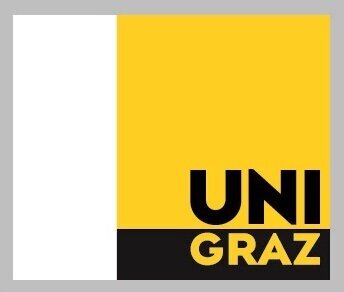Job openings
Are you interested in interdisciplinary research with practical applications?
Do you have (or will soon have) a degree in Applied Mathematics, Data Science, Computer Science, or Biomedical Engineering?
Do you want to be part of an active and dynamic team?
Then join us! The Special Research Area is looking for
- 8 PhD students
- 7 Postdoctoral researchers
to help carry out the exciting research envisioned in our subprojects!
All positions are to be filled as soon as possible and will remain open until filled. To receive full consideration, your application should be submitted before March 21, 2025.
To apply
All applications should be submitted through one of the following links:
Your application should contain a letter of motivation indicating clearly which subproject(s) you would like to join as well as a CV. In addition, you should submit
for PhD positions:
- the title and a one-page summary of your Master's thesis;
- a copy of diploma and transcript of records (if you have already graduated);
- a letter of recommendation from your supervisor confirming that you will have graduated in time for your starting date (if you have not graduated yet);
- the name of one reference we can contact;
for Postdoc positions:
- the title and a one-page summary of your PhD thesis;
- a copy of diploma and your PhD thesis (if you have already graduated);
- a letter of recommendation from your supervisor confirming that you will have graduated in time for your starting date (if you have not graduated);
- the names of two references we can contact.
Special Research Area (SFB)
Mathematics of Reconstruction in Dynamical and Active Models
Funded by the Austrian Science Fund (FWF) grant 10.55776/F100800
March 1, 2025 to February 28, 2029
About the Special Research Area
In many situations, one is faced with the task of reconstructing relevant but not directly measurable parameters, for example in medical imaging using computed tomography or magnetic resonance imaging (MRI). A common approach is to compare suitable indirect measurement data with a mathematical model that describes the relationship between this measurement data and the parameters being searched for; this is referred to as an "inverse problem". Of particular interest here are models with dynamical and active components (i.e. those that are time-dependent and can be influenced externally), as these can be used to design the measurement in such a way that the reconstruction can be carried out as quickly, accurately, and robustly as possible. If the models are described by differential equations, this can be formulated as an "optimal control problem". For example in MRI -- whose mathematical model is the Bloch equations -- image acquisition is controlled by time-dependent magnetic fields, which can be optimized for the fastest possible acquisition with minimal noise or optimal resolution.
Mathematical developments have already made significant contributions in parameter reconstruction and design of measurements, most recently particularly in the context of data-driven methods and machine learning. So far, however, these aspects have been considered largely in isolation from each other, and a holistic approach would open up far greater possibilities for more accurate and, above all, more robust parameter reconstruction.
The aim of this special research area is therefore to develop a comprehensive theoretical framework and efficient numerical algorithms integrating data-driven methods for the entire measurement and reconstruction pipeline and their exemplary implementation for MRI. This requires the close collaboration of experts from optimization, inverse problems, calculus of variations, machine learning, and medical imaging, for which the Austrian research landscape and especially the location Graz is ideally positioned. This is expected to lead not only to a deeper mathematical understanding of the limits and possibilities of optimal reconstruction in dynamical models, but also to clinically relevant improvements in MRI by providing jointly optimized and practically feasible measurement and reconstruction protocols that overcome the current limitations due to motion, incomplete data, or noise sensitivity. In addition to scientific excellence, the community will be strengthened through sustained support for early career researchers who will be uniquely trained by working in an interdisciplinary environment with leading scientists.
